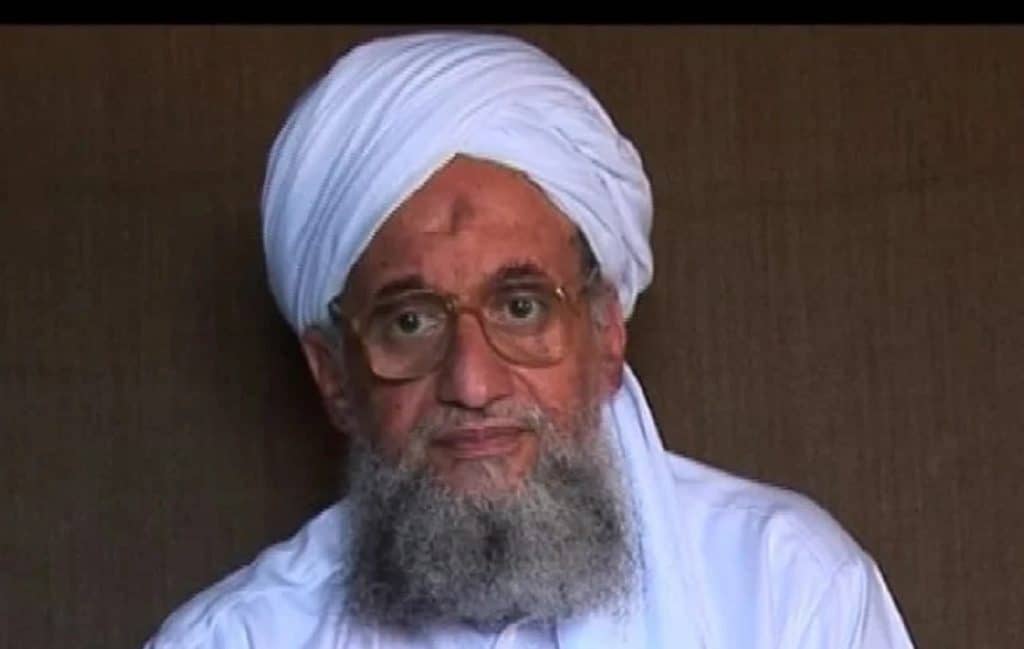By Hafsa Akram
On Monday, Aug. 1, in his morning address, U.S. President Biden said a U.S. drone killed Al Qaeda leader Ayman Al-Zawahiri, mastermind of the Sept. 11 attack. Joe Biden declared that “justice has been served.”

Zawahiri was reportedly standing on the balcony of a shelter in Kabul, Afghanistan. Zawahiri’s presence in Kabul at a house owned by Sirajuddin Haqqani, Afghanistan’s de facto deputy head of state, raises questions about the Taliban’s willingness and determination to prevent terrorist groups from entering its territory, and the Islamic State’s repeated attacks on domestic Afghan targets.
Thus, it appears that Afghanistan has once again become a base for terrorist groups. In late July, the United States participated in a regional conference focused on counterterrorism in Tashkent, Uzbekistan, where Taliban Foreign Minister Amir Khan Muttaki said that his regime had fulfilled its commitments not to allow Afghanistan to be a base for terrorism. However, Zawahiri’s presence in Kabul seems to undercut Muttaqi’s remarks and the Taliban’s alleged promise to cut ties with groups such as al-Qaeda. It will also complicate discussions between the Taliban and U.S. officials about unfreezing Afghan Central Bank funds that could help alleviate Afghanistan’s humanitarian crisis.
Zawahiri’s location in central Kabul, on the other hand, could hint at some form of Taliban sanctuary. A U.S. official quoted in the press pointed to the Haqqani network, known to have hosted Zawahiri, who has long been accused of close ties to al-Qaeda. In a sense, his assassination only confirms Haqqani’s acceptance of and ties to a transnational terrorist group.
Within the Taliban, it is difficult to determine opinions about al-Qaeda and how they feel about supporting the group, even if it poses serious risks to their continued governance of Afghanistan. Current Taliban leaders, the older generation, confirm the difficulties their group has endured since the United States invaded Afghanistan in late 2001 and toppled the Taliban because of the 9/11 attacks by Al Qaeda. But the subsequent two decades of U.S. and NATO intervention have strengthened many Taliban against the West and brought many young Taliban closer to online communities of global propaganda and jihadism. What is almost certain is that the Taliban base sees the confirmation of a U.S. drone strike as a serious violation of Taliban sovereignty and an embarrassing example of their group’s weakness.
In high-level meetings and diplomatic statements, the Taliban continue to refer to U.S. commitments under the Doha Accords (signed with the U.S. in February 2020), which state that the Taliban withdraw support from groups that seek to harm the U.S. or its allies, with specific reference to al-Qaeda.
However, the circumstances of Zawahiri’s death make it clear that the Taliban is in serious violation of the agreement while continuing to pressure the United States to abide by it. Deputy Interior Minister Sirajuddin Haqqani last year convinced foreign diplomats of his reputation as a wise and pragmatic interlocutor on various policy issues, including girls’ education. The Zawahiri affair may make many donors uncomfortable with the idea of continuing to engage with Haqqani. It will also reinforce the concerns of Afghanistan’s neighbors and regional powers that terrorism could break out beyond the country’s borders.
The United States had to agree to at least a minimal diplomatic commitment to somehow normalize the Taliban government. The compromise was that the engagement facilitated U.S. assistance to alleviate the huge humanitarian and economic crises and kept an open channel to the Taliban, respect for women and human rights, inclusive governance, and counterterrorism.
But Zawahiri’s killing undermines such compromise, demonstrating the Taliban’s apparent willingness to continue to harbor Al Qaeda. It will be more difficult than ever for the United States and other nations to engage with the Taliban government. Although the Taliban’s abusive and repressive policies had already extinguished hopes that their second government would be different from the first, now, their blatant violation of the counterterrorism commitments, made in the February 2020 Doha Agreement, puts them on the path to becoming a pariah regime once again.
The Taliban regime has not yet been officially recognized by any country. Nations, across geopolitical divides, have insisted that the Taliban first demonstrate their willingness and ability to control all of Afghanistan and limit terrorist groups. The international community has also called on the Taliban to form an inclusive government and guarantee women’s rights. The Taliban have yet to fulfill their commitments.
As was already stated in the report submitted to the U.N. Security Council in January by the U.N. Special Representative for Afghanistan, “the existence of numerous terrorist groups in Afghanistan remains a broad international and especially regional concern. The willingness of the de facto authorities to address this full-scale threat has yet to be convincingly demonstrated.”
Author: Hafsa Akram – Pakistani-based contributing Writer at Midstone Center for International Affairs, and an intern Trainee at Foreign Policy Research Centre ( FPRC). She writes for The Pakistan Daily, Millichronicle. Her Area of expertise is Afghanistan Conflict, Middle East affairs.
(The views expressed in this article belong only to the author and do not necessarily reflect the views of World Geostrategic Insights).







